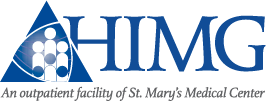Liver Disease
The liver is an organ about the size of a football that sits just under your rib cage on the right side of your abdomen. The liver is essential for digesting food and ridding your body of toxic substances.
Liver disease can be inherited (genetic) or caused by a variety of factors that damage the liver, such as viruses and alcohol use. Obesity is also associated with liver damage. Over time, damage to the liver results in scarring (cirrhosis), which can lead to liver failure, a life-threatening condition.
Tests and diagnosis
Finding the cause and extent of liver damage is important in guiding treatment.
Your doctor is likely to start with a health history and thorough physical examination. Your doctor may then recommend:
- Blood tests. A group of blood tests called liver function tests can be used to diagnose liver disease. Other blood tests can be done to look for specific liver problems or genetic conditions.
- Imaging tests. CT scan, MRI and ultrasound can show liver damage.
- Tissue analysis. Removing a tissue sample (biopsy) from your liver may help diagnose liver disease. Liver biopsy is most often done using a long needle inserted through the skin to extract a tissue sample. It is then analyzed in a laboratory.
Treatments and drugs
Treatment for liver disease depends on your diagnosis. Some liver problems can be treated with lifestyle modifications, such as stopping alcohol use or losing weight, typically as part of a medical program that includes careful monitoring of liver function. Other liver problems may be treated with medications or may require surgery.
Treatment for liver disease that causes liver failure may ultimately require a liver transplant.
Hepatobiliary Disease
Hepatologists specialize in the study of the liver. The hepatologist will diagnose, treat and care for patients who have disorders of their liver, gallbladder or bile ducts. A team approach is used at HIMG. In addition to the hepatologist, this team may include a desk clinical assistant, secretary, nurse, physician assistant or fellow. The team may also include a radiologist (a doctor specialized in imaging the liver), oncologist (a doctor specialized in the treatment of liver cancer), a pathologist (a doctor specializing in evaluating biopsy specimens), or hepatobiliary surgeons. One goal at HIMG is to provide the patient with a thorough, yet timely, cost-effective evaluation of his or her liver disorder.
Common disorders seen by the Hepatobiliary Interest Group
- Autoimmune chronic active hepatitis
- Viral hepatitis
- Alcoholic hepatitis
- Alcoholic Liver Disease
- Metabolic disorders
- Primary biliary cirrhosis
- Primary Sclerosing Cholangitis
- Benign and malignant liver tumors
- Cholangiocarcinoma (bile duct cancer)
- Budd-Chiari syndrome
- Drug-induced hepatotoxicity
- Gallbladder disease
Please contact us at (304) 528-4660.



